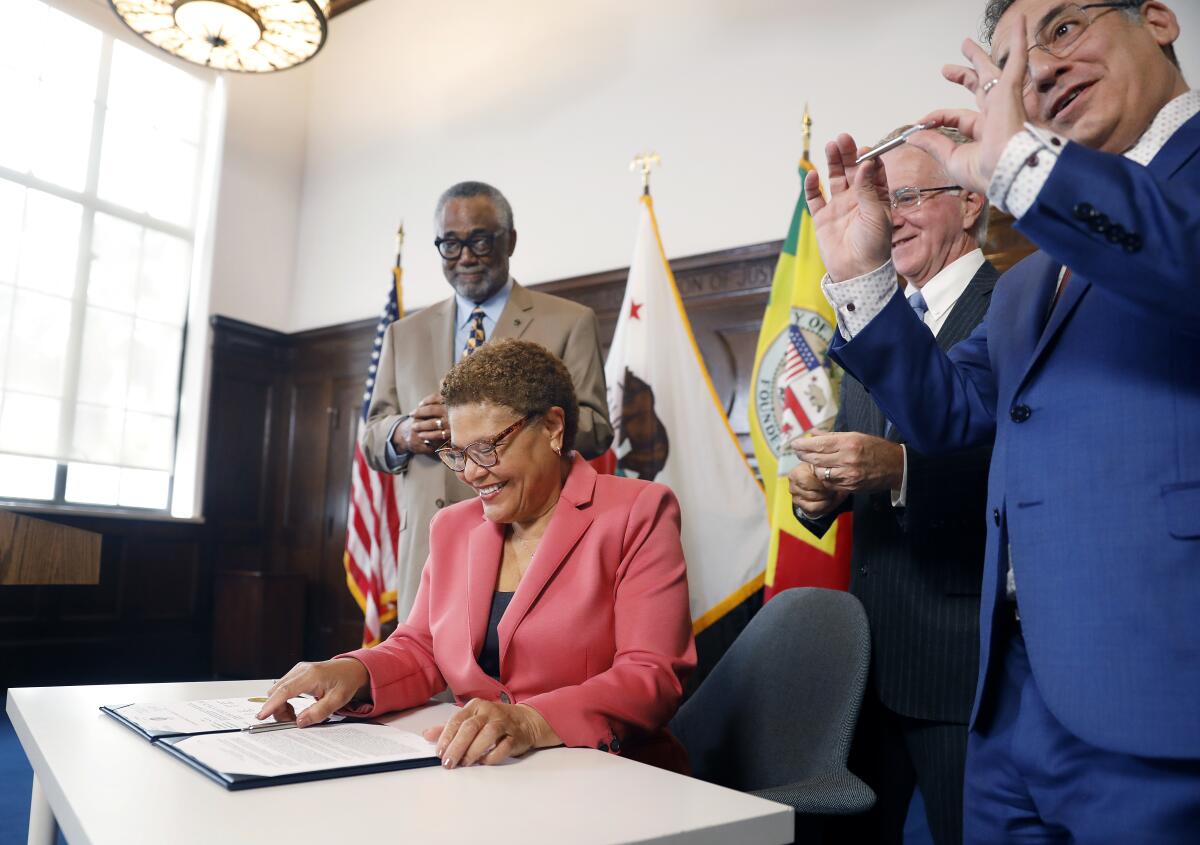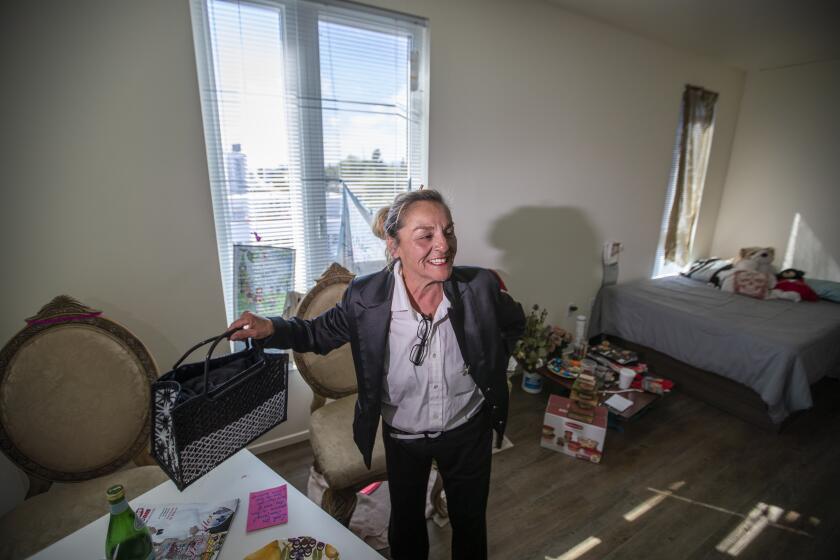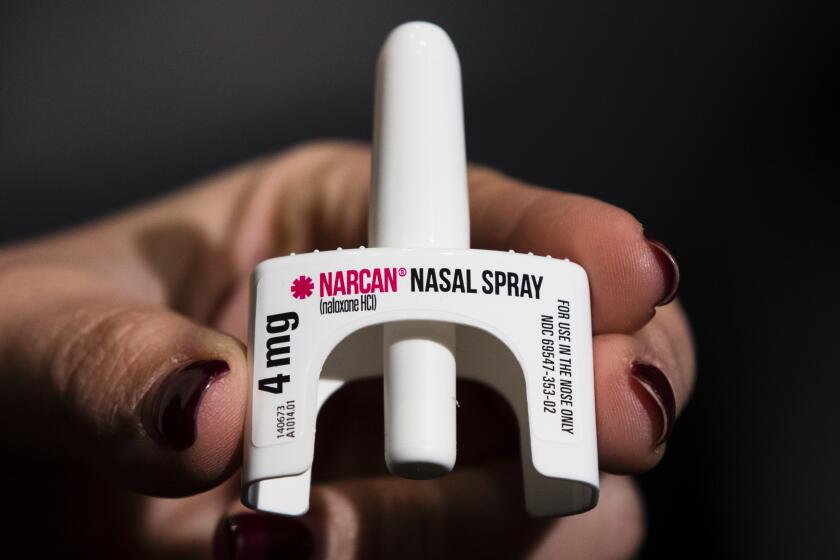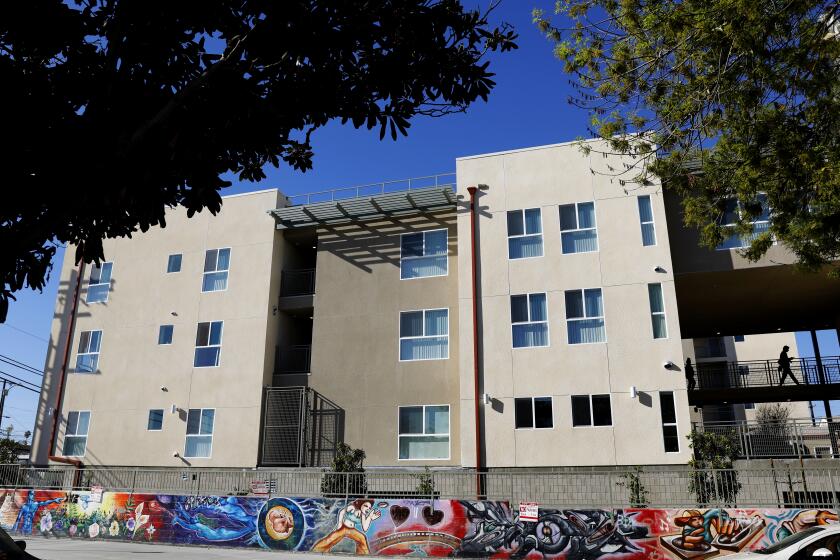Editorial: Why Mayor Bass’ proposal for L.A. city drug treatment funding makes sense

Most of the roughly 1,000 homeless people who died in Los Angeles last year succumbed to overdose. Although only a minority of the people living on L.A.’s streets and sidewalks have a drug problem, and although lack of affordable housing is the largest driver of homelessness, substance use disorder is a significant presence on the street.
Of L.A.’s 42,000 homeless people, between a quarter and a third are estimated to regularly use methamphetamine, opioids like fentanyl, or other dangerous substances. So any realistic plan to end homelessness must include effective drug treatment.
That was clear to Karen Bass decades ago, when she was a physician’s assistant and then an organizer who founded the Community Coalition. The original name of the South Los Angeles-based organization — the Community Coalition for Substance Abuse and Treatment — is a reminder of the central role addiction plays in homelessness alongside poverty, crime and racism, even as drug use undermines the lives of people of all races and economic circumstances.
As mayor of Los Angeles, Bass has prioritized drug rehab and wants the city, for the first time, to help pay for it. To understand why that makes good sense, it helps to recall the recent history of other levels of government — federal, state and county — in funding substance abuse disorder treatment.
Homeless people shouldn’t have to spend weeks collecting proof of their Social Security numbers and poverty before they can move into apartments.
Rehab programs became more widely available with passage in 2010 of the Affordable Care Act, also known as Obamacare. In California, federal funds are directed by the state Medi-Cal program to counties, which reimburse providers for 30 days of treatment for each participant, or up to 90 days with extensions.
It’s not enough. Recovering from substance abuse disorder requires serious work, and a serious time commitment.
A few weeks in residential treatment may be enough for the “detox” portion of therapy, which generally includes drug withdrawal and other physiological decontamination.
But treatment also has to address habits and thought patterns that are based at least as much in psychology as biology. Many people who successfully completed programs report that 30 days was barely enough time to clear their heads. After 90 days, participants may be ready, with guidance, to begin talking about how to get their lives back on track. It may take a year of living with peers to be ready to live independently and begin the outpatient portion of recovery.
The pre-Obamacare funding model sustained longer programs, but for fewer people. To serve most participants today, providers have had to adapt to the shorter model, and risk patients returning to the street and old habits once the funding runs out. To keep people on a sustainable road to recovery, supplemental funding is needed to pay for longer therapy regimens.
If the goal of fentanyl laws is to prevent overdose and poisoning deaths, they should fund testing, treatment and information. Harsher criminal punishment only will only make the next drug even more deadly.
Los Angeles County, rather than the city, administers Medi-Cal reimbursements and provides health services for most of its 10 million residents. But it has many competing needs for health funding and appears unenthusiastic about using it to extend drug treatment past 90 days.
So why not tap city funds? The city of L.A. has no health department and little history in providing or funding drug rehab. But it has millions of dollars from the settlement of multiple lawsuits against manufacturers and distributors of opioids.
And it has a mayor who shows a refreshing impatience with the niceties of jurisdictional boundaries. Bass wants to use the money to supplement Medi-Cal drug treatment reimbursements so that providers can once again offer residential programs that last at least 180 days.
A new directive by Mayor Karen Bass orders city agencies to work simultaneously to approve plans for homeless housing projects. Will it work to get people housed quicker? It looks promising, but we will be watching.
Members of the City Council will have their own ideas about how best to spend the opioid settlement funds, but they’d be hard-pressed to find a better use, or a better time for it. Longer, more effective substance use treatment programs are an essential component of any successful plan to treat anyone who is struggling with drug use, whether homeless or housed.
There have been exciting developments in drug treatment. Some patients who take semaglutide, a medication prescribed for weight loss and diabetes under the brand names Ozempic, Wegovy and Rybelsus, have discovered reduced cravings not just for food but for alcohol and tobacco. Could it also work for meth? For heroin? Further study is needed.
For now, though, no magic pill or potion has yet been shown to be as successful at treating substance use disorder as sustained residential treatment followed by continuing outpatient care. The city has the need, and for now it has the money. It’s time to put it to use.
More to Read
A cure for the common opinion
Get thought-provoking perspectives with our weekly newsletter.
You may occasionally receive promotional content from the Los Angeles Times.













